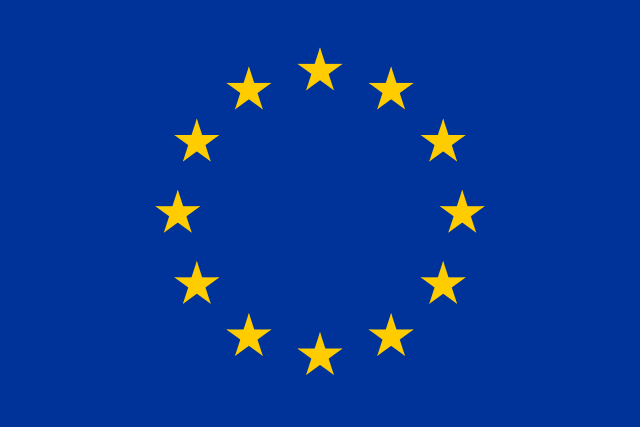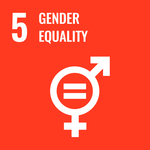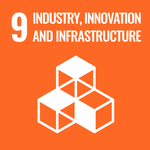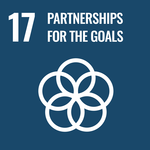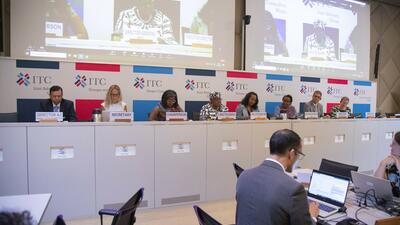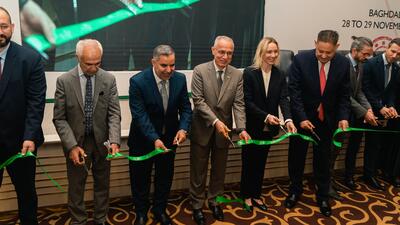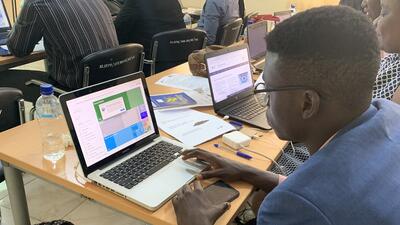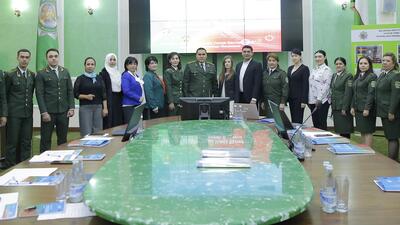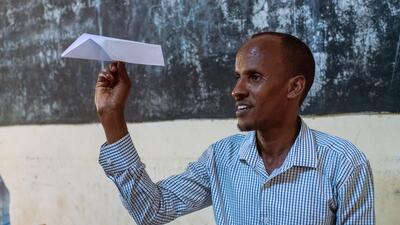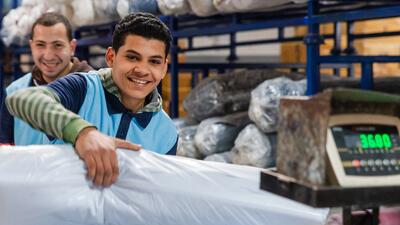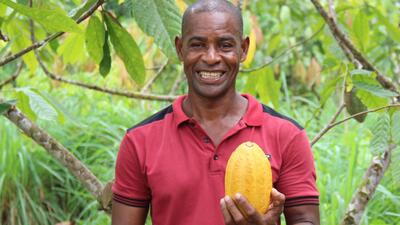
Case study: Making borders work for women traders in Central Asia
The ‘four Cs’ – COVID, climate, conflict and cost-of-living – greatly tested small businesses around the world and set back the Sustainable Development Goals. This case study, from the ITC Annual Report 2022, highlights how the International Trade Centre helped entrepreneurs find new ways to prosperity through trade.
The challenge
More than half of women traders in Central Asia struggle to understand or even access information on official border regulations. About 35% of these women say training government officials on procedures and communication with traders could improve their cross-border experience. These are some of the findings from the survey of more than 1,500 women in Central Asia conducted by the EU-funded Ready4Trade Central Asia project.
One of the root causes of these challenges is that trade facilitation is traditionally considered gender neutral, and customs is often a male-dominated environment that does not properly account for gender-based constraints. In fact, 75% of surveyed trade-related agencies in Central Asia do not integrate gender analysis and/or indicators in their work. To break this gender-neutral mentality, trade policymakers, border regulatory agencies and the business community must work together to create a women-inclusive border environment.
The solution
ITC initiated work with customs administrations and women business associations in Central Asia to introduce gender-responsive trade facilitation and make a difference on the ground. The project developed the training programme Gender-Responsive Trade Facilitation for Border Officials that was fully adapted to regional needs.
It then conducted a training of trainers for experts from each customs administration to equip them with appropriate technical and pedagogical tools to facilitate discussions with their colleagues across their respective countries. This was crucial to ensure the sustainability and reach of the intervention.
The results
The master trainers successfully delivered capacity-building sessions under ITC supervision to more than 600 border officials across five Central Asian countries. They learned how to analyse constraints that women face in cross-border trade and develop fair and ethical trade facilitation practices for creating a gender-responsive border environment. In the spirit of inclusive public–private dialogue, women entrepreneurs also took part in the workshops and had the opportunity to share their experiences and the challenges they face directly with border officials.
Many stakeholders noted that the sessions brought a new perspective to their daily work and expressed interest in incorporating this gender-responsive approach in future activities.
One year after the training, 60% of beneficiaries reported gender-responsive changes in border operations. For example, among many other actions, additional consultations for women traders are provided, more women officials conduct inspections and gender-sensitive behavioural practices at the border are being applied. Some participants went so far as to admit better understanding their wives and providing more support to their daily activities.
The future
Customs administrations, initially sceptical, are satisfied with the results and will incorporate the programme as part of their curriculum for sustainability. They have also established stronger partnerships and continuous dialogue with women business associations. Beneficiaries are requesting more training of this type, including for women leaders to emerge and to attract young talent in customs administration. ITC will provide more support to women traders to help build their understanding of customs procedures and their rights at the border, thereby driving a gender-responsive trade facilitation agenda in Central Asia.






